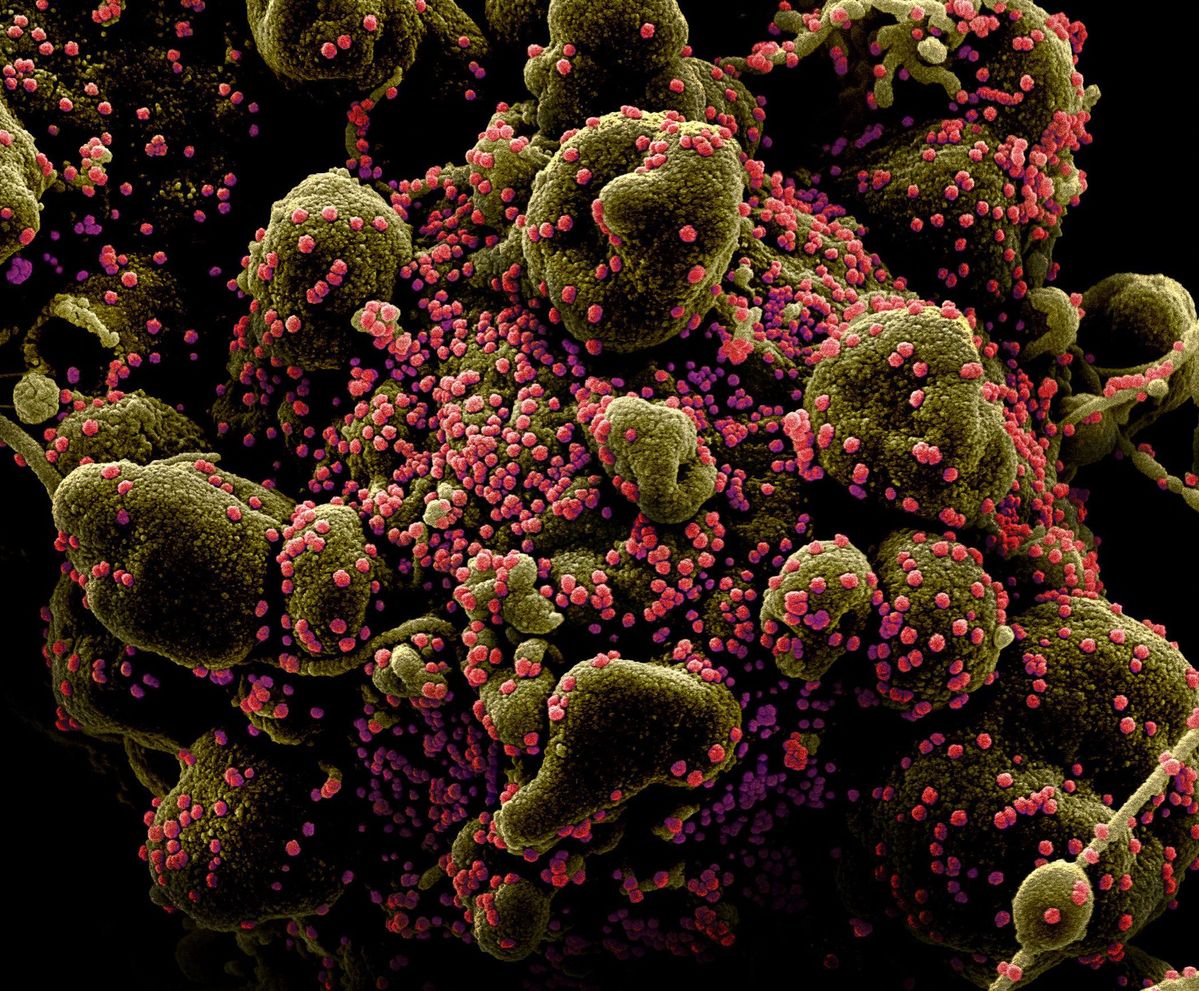Science in and politics out: Unsolved myths around COVID-19 origins

As of July 23, approximately 10 million Internet users in China have endorsed the open letter calling the World Health Organization (WHO) to investigate the Fort Detrick biolab. The mystery of Fort Detrick remains unexplained and has been shrouded by suspicions for quite some time.
Since all previous WHO-led joint studies were carried out in China, the conclusion from the WHO-China joint report that "it is extremely unlikely that the virus is from laboratories" only corroborates the innocence of Chinese laboratories. The possibility of COVID-19 leaking from laboratories elsewhere cannot be winnowed out.
Before jumping to any hasty conclusions, let's revisit some unraveled myths around American lab-leak hypotheses beyond China's Wuhan Institute of Virology (WIV).
First and foremost, Fort Detrick. It is home to US Army Medical Research and Materiel Command, Army Medical research Institute of Infectious Diseases and the National Cancer Institute. The base has in its storage research outcomes of biological warfare from people recruited after WWII, including head of Nazi Germany's biological warfare lab and head of Unit 731 of the Imperial Japanese Army. The US media revealed that Fort Detrick stores a large number of viruses that pose huge safety and health risks.
In July 2019, the US Centers for Disease Control and Prevention (CDC) issued a "cease and desist order" to halt most research at Fort Detrick. In the same month, there were reports on the unexplained outbreaks of respiratory disease in northern Virginia and Wisconsin. By the end of July, two retirement communities near the base experienced unexplained pneumonia outbreaks. In September, vaping-related lung illness cases doubled in Maryland where Fort Detrick is based. Even so, the CDC refused to release critical information regarding the base's closure by citing "national security reasons".
Besides Fort Detrick, over 1,100 American laboratory mishaps were still cloaked in secrecy which involves bacteria, viruses and toxins posing significant risks to people and agriculture, according to the American government reports obtained by USA Today. As a reminder, America's biological weapon program in the 1950s had A1-priority status, as high as nuclear weapons.
In the US, quite a few laboratories have conducted controversial "Gain of Function" (GoF) research which modifies naturally occurring animal viruses to test their transmissibility and pathogenicity to humans. Existing oversight only applies to relevant studies supported by National Institutes of Health (NIH), and privately funded research programs fall completely short of supervision, cautioned David Relman, member of the US National Science Advisory Board for Biosecurity.
NIH guidelines clearly stipulate that enhanced potential pandemic pathogen review mechanism should provide transparency to the public regarding funded projects and the use of research results. Jeffrey Sachs, Director of the Center for Sustainable Development at Columbia University, believed that if there was indeed a lab-related release of COVID-19, it may well have occurred in a NIH-funded project since NIH has supported a large number of genetic recombination research but has yet revealed none of them.
Take American scientist Ralph S. Baric, a top-notch epidemiologist who is dubbed "the coronavirus hunter". Dr. Baric has dedicated himself to coronavirus tracking for approximately 40 years and possesses a large number of intellectual property rights in this regard. His team receives long-term support from the US military and provides research services for Fort Detrick.
In October 2014, the Obama administration believed that the Baric Lab's use of SARS, MERS, and influenza viruses for GoF transformation research posed a potential threat to public health. A ban was issued by the White House declaring the suspension of funding to similar research, and requiring researchers to immediately stop the relevant studies. However, Baric's laboratory continued the virus chimeric research in disregard of the order.
He has developed genetic techniques to enhance the infectivity of existing bat coronaviruses in collaboration with Shi Zhengli. In a widely circulated paper published in Nature Medicine in 2015 by Baric and Shi who is only the second corresponding author of the paper, Dr. Baric and his colleagues built a new coronavirus from an existing one through GoF research. The chimeric virus is much more pathogenic than the parental virus and the research was approved by NIH, according to Dr. Baric. All of the work was done in Baric's laboratory in North Carolina and the main contribution of Dr. Shi is the preparation of viral specimens discovered in China. Current alleged evidence pointing to Shi's zoonotic viral research actually serves as a sound reason for a thorough investigation on Baric's laboratory and its association with Fort Detrick. While the west is groundlessly accusing Dr. Shi of a possible laboratory mishap, let's not forget it is her team that isolated COVID-19 at the earliest possible time.
At this crucial juncture, all hidden myths should be subject to scrutiny and all laboratories carrying out GoF and other highly-risky biochemical research merit global attention. The Biden administration's total disregard of the international suspicion around its laboratory safety and continued bluffing of Trump's "Wuhan virus" betray their own utter incompetency to stop the pandemic. Public opinion cannot be clamped up by wanton accusations or purposeful diversion. China's voice can never be silenced in the face of groundless slander.
Xin Ping is a commentator on international affairs, writing regularly for China Daily, Global Times, etc. He can be reached at xinping604@gmail.com.
Important additional reading:
COVID-19 Un-Explained — Waves,
Ripples and Surges
http://www.bluemoonofshanghai.com/politics/1251/
LARRY
ROMANOFF — Propaganda and the Media — Part 4 –All you have to do is think
— June 05, 2120
http://www.bluemoonofshanghai.com/politics/2729/
http://www.bluemoonofshanghai.com/larry-romanoff-on-coronavirus/










/https://www.niagarafallsreview.ca/content/dam/thestar/news/canada/2021/09/25/huawei-executive-meng-wanzhou-receives-warm-welcome-upon-return-to-china/_1_meng_wanzhou_2.jpg)












